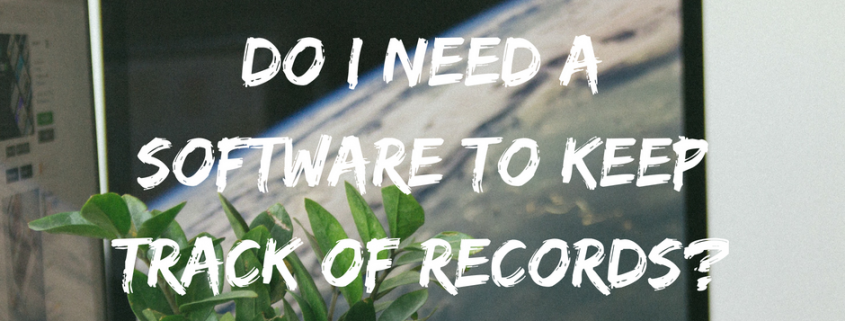If I just started a new business, do I need a software to keep track of records? – by Brenda
Generally, it is not a must to use a software for record keeping. In the following text, the importance on record keeping and features of record keeping manually and electronically will be discussed.
Importance of Record Keeping
According to the Australian taxation ruling, your business records must be kept or you can incur penalties. They must:
- be kept for a minimum of five years or longer.
- be in English or in a form that can be easily translated.
Some other advantages of good record keeping includes:
- being able to analyse your business and make good business decisions;
- providing information for future business planning;
- demonstrate the financial position of your business to banks, lenders, and potential buyers;
- protect your business from disputes or any legal issues;
- to complete and lodge your tax returns;
- keeping up with tax and legal compliances.
Tips on Record Keeping
- Gather all your receipts and bills.
- Sort and group into types of expenses.
- File them according to the order of paid date.
- Separate the paid and unpaid bills.
- Keep these records in proper folders. If you want to store them electronically, scan the bill or receipt and arrange them by year, then by alphabets.
- Ensure the tax invoices contain all the information required by ATO.
- Cross reference your records by noting down invoice number on cheques and vice versa or the date and method of payment for electronic payments.
Record Keeping by Paper
These records can be kept on paper so it is not necessary to have a software to store them. Paper or hard copies of records are often the original copies which are used as evidence to support electronic records when a legal matter arises.
Business owners often opt for manually keeping records as it:
- saves cost;
- avoids problems such as having multiple copies of the same records;
- is easier to handle documents as you do not require knowledge on software.
The drawbacks of manually keeping records are that they:
- are often misfiled;
- are often damaged to exposure to water or sunlight;
- require a lot space to store these paper records.
Electronic Storage of Records
However, it is definitely more beneficial to store them electronically. The right software will be able to help you ease your tasks by:
- making calculations and tally amounts automatically;
- producing necessary reports, invoices and summaries for taxing purposes;
- serving as back-up in case of flood, fire or theft;
- saving physical storage space;
- allowing easy duplication, organisation and search of files;
- linking to lodgement systems to save time when reporting to ATO.
The disadvantages are:
- the possibility of losing data or data corruption if the records are stored in a hard drive or USB device.
- requiring additional security to ensure all information are protected from computer viruses or unauthorised access.
If you require any advice about the setting up or finding a system that best suits you, don’t hesitate to contact our accountants at Simpro Taxation Services.



